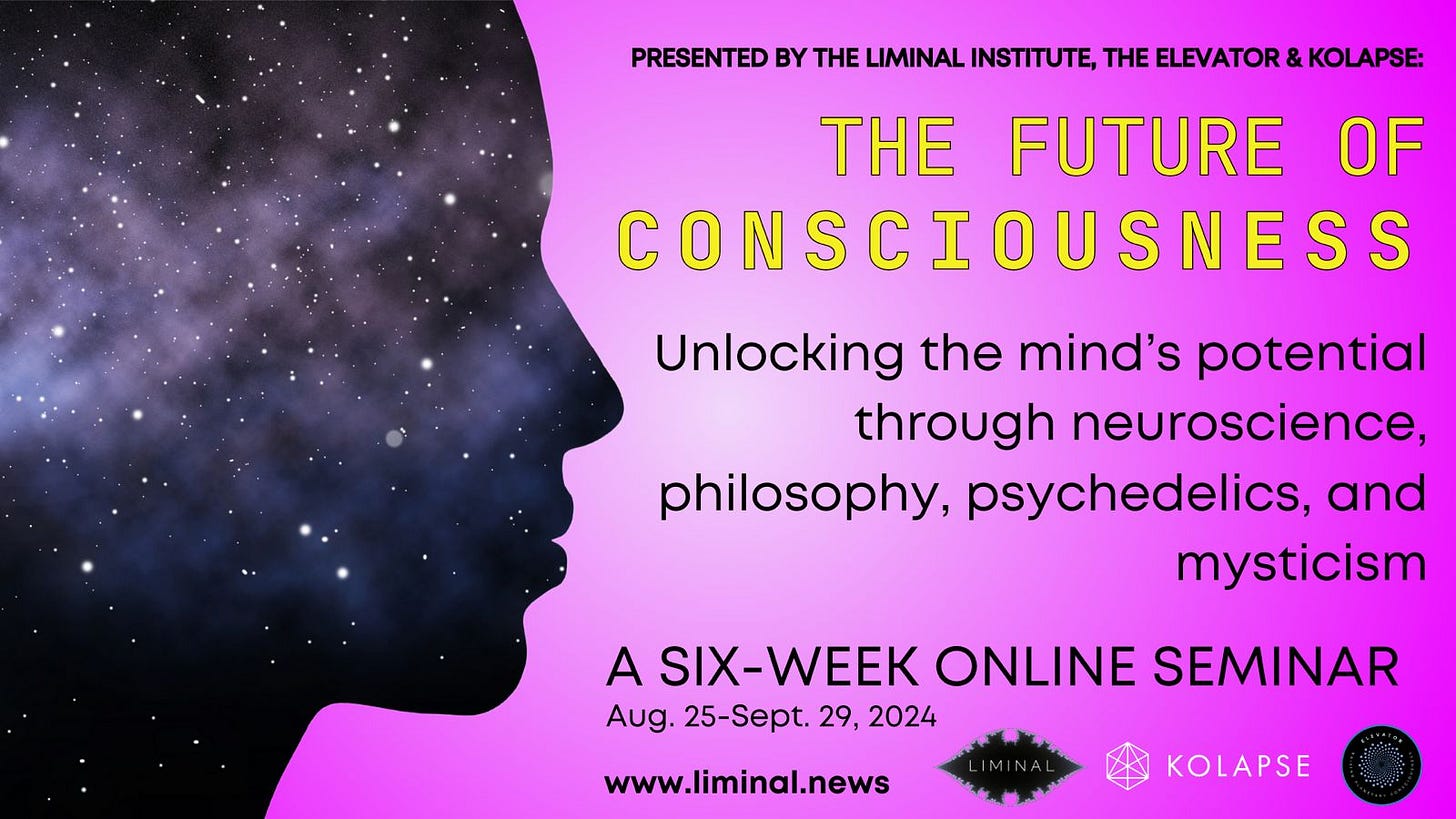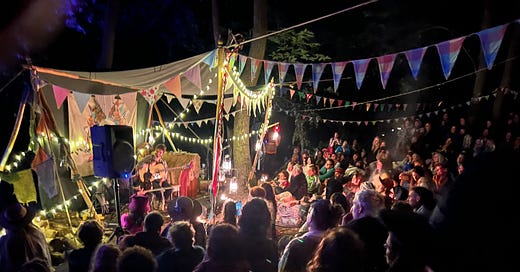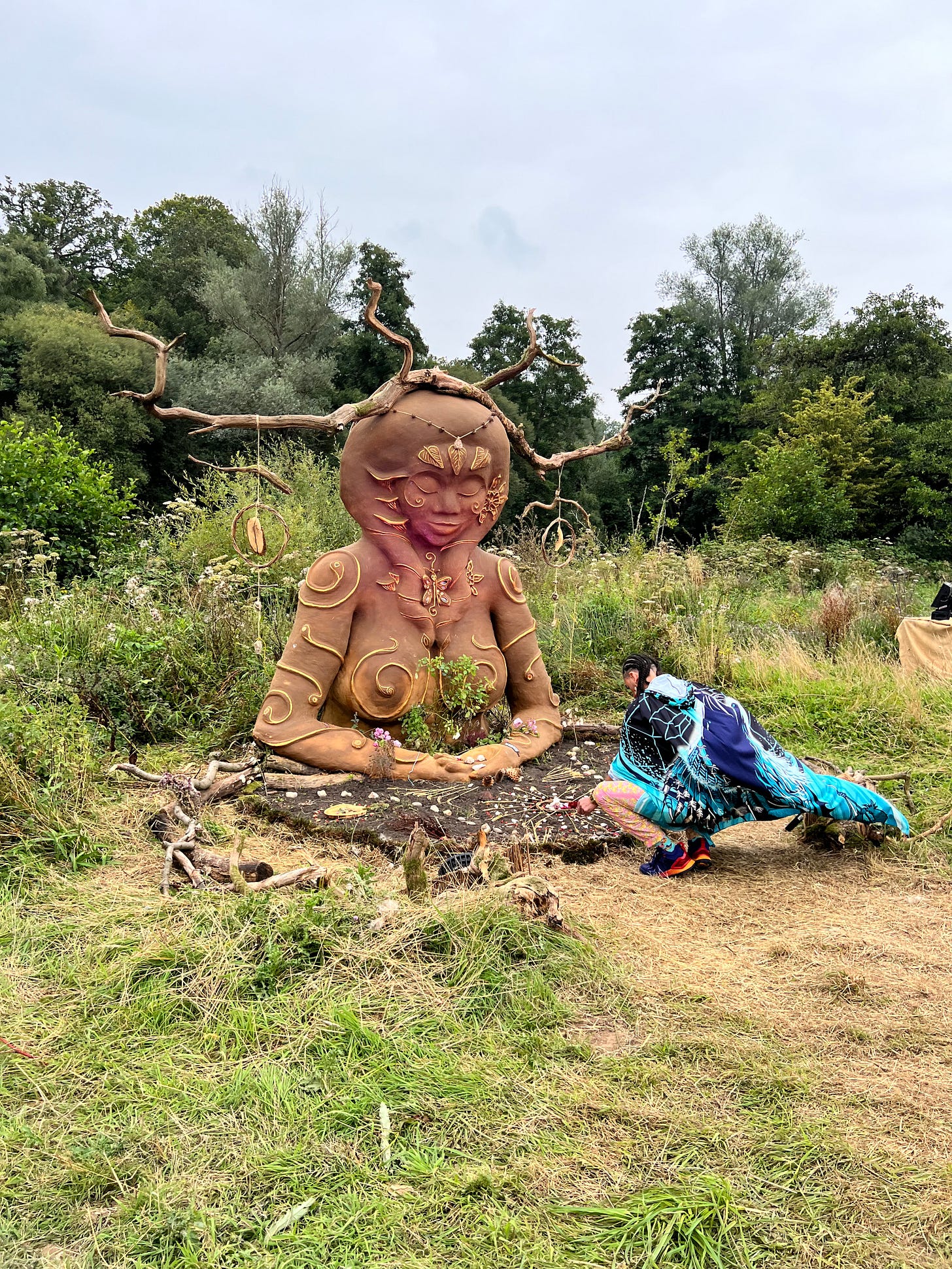Thoughts on Medicine Festival
“When modes of music change, the fundamental laws of the state always change with them.” - Plato
I just left Medicine Festival in Reading, UK, a few days ago. I want to write about it quickly before my memory and feelings fade. It was one of my favorite festival experiences. It points toward some significant upgrades in how people want to be together, now and, I suspect, increasingly, in the future. Set in a beautiful forest with rolling hills and a lake, the festival impressively synthesized intention and execution.
This was the fifth Medicine Festival. They launched a small-scale prototype during the pandemic in 2020 (where, apparently, a number of attendees got Covid after a poorly envisioned hapé ceremony). It has rapidly increased in size. This year, 7,500 or 8,000 people attended. The festival takes place on private land. The landowner is a committed steward of the event. All profits from the event go to indigenous causes.
The festival is a “Community Interest Company (C.I.C.)” — something I have never heard of before, a hybrid for-profit / nonprofit. The website declares: “Our vision at Medicine Festival is a world where nature is cherished, peace is revered and difference is celebrated; where humankind has reclaimed the gifts of gratitude, reciprocity, and guardianship for all life.” A main focus of the festival is indigenous music, with musicians representing many traditions around the world, including South American and African traditions.
The event radiates powerful feminine energy, and is alcohol free. I would guess (I don’t have statistics) there were 1.4 or 1.3 women at the festival for every man. The festival highlighted the “Goddess,” the great mother, in both the outdoor sculptures and programming, which featured several large women-focused areas and only one, considerably smaller, men’s tent.
Anyone who has gone to a few English festivals knows the influence that alcohol exerts on these events. By 1 or 2 AM, people slosh around, the restrooms become disaster zones, and there is a general sense of chaos and cacophony. At Medicine Festival, instead, the feeling of calm, presence, and intentionality continued all through the night. There was even, at times, when certain musicians played, a feeling of reverence.
I only saw a few freak outs — one long-limbed, bearded hippie man climbed up to the top of a tent and took off all his clothes, screaming his head off. Luckily, he came down without harming himself or anyone. The few freak-outs I saw were all by men. I started to wonder if the intense feminine energy of the event was too much for some men to handle. Those men who freaked out were, perhaps, expressing something for the collective masculine, which isn’t quite sure what to do at the moment, with the “rising of the feminine” in full effect.

Along with indigenous music from South America and Africa, I heard a good assortment of indigenous music from the British isles: from Wales, Ireland, and the UK itself. I found this a crucial part of the festival: A reclamation of local indigenous traditions, many with ancient pedigrees. One example was Ryan Young, a master fiddler who played late one night at the Nest, a distant stage hidden in the forest (you can listen to his record here). He was spellbinding. In between songs he told us his story: Apparently, he didn’t speak as a child. He found the fiddle, and preferred to speak through it instead.
Another incredible performer was Bethan Lloyd (here on Spotify), who sang many songs in Welsh. Here is a snippet I recorded on my phone:
During the festival, I thought about the intrinsic relationship between how people behave and the musical ambience that shapes them. If we start to move away from EDM (which, while has gotten so repetitive), back to older forms of song and instrumentation, the ways people act toward each other will, I think, also change.
Would a disposable culture still be enticing for people who listen to ancient ballads and indigenous music that imprints them with different ideals, orienting them toward older ways of thinking and being than, for instance, rock or techno?
Keep reading with a 7-day free trial
Subscribe to Liminal News With Daniel Pinchbeck to keep reading this post and get 7 days of free access to the full post archives.






